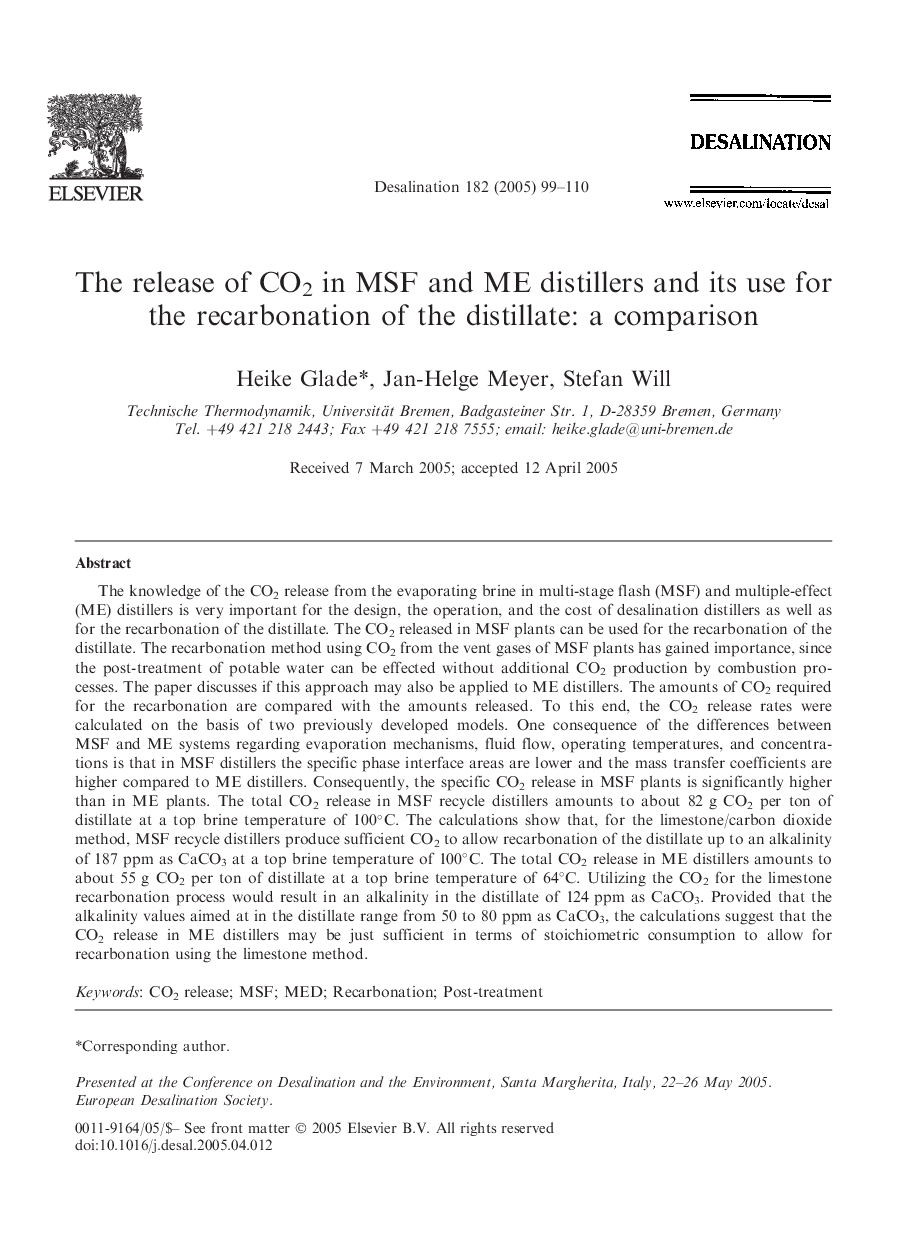| کد مقاله | کد نشریه | سال انتشار | مقاله انگلیسی | نسخه تمام متن |
|---|---|---|---|---|
| 9680966 | 1455508 | 2005 | 12 صفحه PDF | دانلود رایگان |
عنوان انگلیسی مقاله ISI
The release of CO2 in MSF and ME distillers and its use for the recarbonation of the distillate: a comparison
دانلود مقاله + سفارش ترجمه
دانلود مقاله ISI انگلیسی
رایگان برای ایرانیان
موضوعات مرتبط
مهندسی و علوم پایه
مهندسی شیمی
تصفیه و جداسازی
پیش نمایش صفحه اول مقاله

چکیده انگلیسی
The knowledge of the CO2 release from the evaporating brine in multi-stage flash (MSF) and multiple-effect (ME) distillers is very important for the design, the operation, and the cost of desalination distillers as well as for the recarbonation of the distillate. The CO2 released in MSF plants can be used for the recarbonation of the distillate. The recarbonation method using CO2 from the vent gases of MSF plants has gained importance, since the post-treatment of potable water can be effected without additional CO2 production by combustion processes. The paper discusses if this approach may also be applied to ME distillers. The amounts of CO2 required for the recarbonation are compared with the amounts released. To this end, the CO2 release rates were calculated on the basis of two previously developed models. One consequence of the differences between MSF and ME systems regarding evaporation mechanisms, fluid flow, operating temperatures, and concentrations is that in MSF distillers the specific phase interface areas are lower and the mass transfer coefficients are higher compared to ME distillers. Consequently, the specific CO2 release in MSF plants is significantly higher than in ME plants. The total CO2 release in MSF recycle distillers amounts to about 82 g CO2 per ton of distillate at a top brine temperature of 100°C. The calculations show that, for the limestone/carbon dioxide method, MSF recycle distillers produce sufficient CO2 to allow recarbonation of the distillate up to an alkalinity of 187 ppm as CaCO3 at a top brine temperature of 100°C. The total CO2 release in ME distillers amounts to about 55 g CO2 per ton of distillate at a top brine temperature of 64°C. Utilizing the CO2 for the limestone recarbonation process would result in an alkalinity in the distillate of 124 ppm as CaCO3. Provided that the alkalinity values aimed at in the distillate range from 50 to 80 ppm as CaCO3, the calculations suggest that the CO2 release in ME distillers may be just sufficient in terms of stoichiometric consumption to allow for recarbonation using the limestone method.
ناشر
Database: Elsevier - ScienceDirect (ساینس دایرکت)
Journal: Desalination - Volume 182, Issues 1â3, 1 November 2005, Pages 99-110
Journal: Desalination - Volume 182, Issues 1â3, 1 November 2005, Pages 99-110
نویسندگان
Heike Glade, Jan-Helge Meyer, Stefan Will,